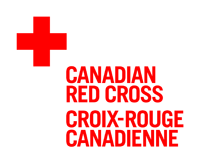44th Annual Conference • November 5-7, 2015 • Ottawa, Canada
International Law: Coherence or Chaos?
The 2015 CCIL conference is an opportunity for international law practitioners from academia, NGOs, the public sector, and the private sector to come together to explore the issue of how international law has grown and whether it has moved towards fragmentation or coherence. The conference will feature prominent figures in international law as keynote speakers and present numerous panels with practitioners at the forefront of international law. Joins us for this exceptional cutting edge program and its unique networking opportunities!
Continuing Professional Development Credits:
Thursday’s workshops entitled Advocacy and Lobbying in Treaty Negotiations and The International Lawyer in the Media Spotlight have been accredited by the Law Society of Upper Canada for 1.50 Professionalism Hours each for a total of 3.0 Professionalism Hours.
The Annual Conference is accredited by the Law Society of British Columbia for up to 20 Hours and therefore automatically recognized by the Barreau du Québec up to the same amount of hours for the purposes mandatory continuing professional education requirements, under section "Formation reconnue automatiquement".
The Theme:
International law operates today in a network of subject- and region-specific agreements and forums, with differing levels of efficacy and enforceability. Undoubtedly, specialized fields, such as the law of the sea, international humanitarian law, international criminal law, international trade law, and international investment law have developed into fully-functioning regimes. However, these self-contained regimes operate within the broader context of public international law. Amidst a proliferation of treaties, customary international law, and soft law norms, what are the applicable rules of international law? How can the rules be interpreted in a manner that ensures coherence within and between regimes? Some commentators maintain that specialization results in insulation and potential conflicts between regimes. Conversely, others argue that specialization leads to increased efficiency and protection of the rule of law.
What is the role of international courts and tribunals? Should they be the guardians of coherence and maintaining the rule of law in the face of the rapidly increasing number of treaties and cases? Is coherence of international norms across regimes necessary or to be desired? Within regimes, how much fragmentation or coherence is desired? Are international courts and tribunals different in this respect from domestic courts and tribunals? Contradictions abound in contemporary international law jurisprudence. On the one hand, the growing body of decisions in some regimes demonstrates consistency and coherence. Conversely, the lack of appellate review mechanisms and the non-binding nature of decisions in other regimes may lead to conflicts and chaos.
Is the complex, international legal system today becoming more coherent and cohesive or heading toward fragmentation and chaos? The 44th Annual Conference of the Canadian Council on International Law will examine these important issues and more.
SILVER
BRONZE
Our Supporters
The CCIL gratefully acknowledges our sponsors for their generous support of the 2015 Conference.










